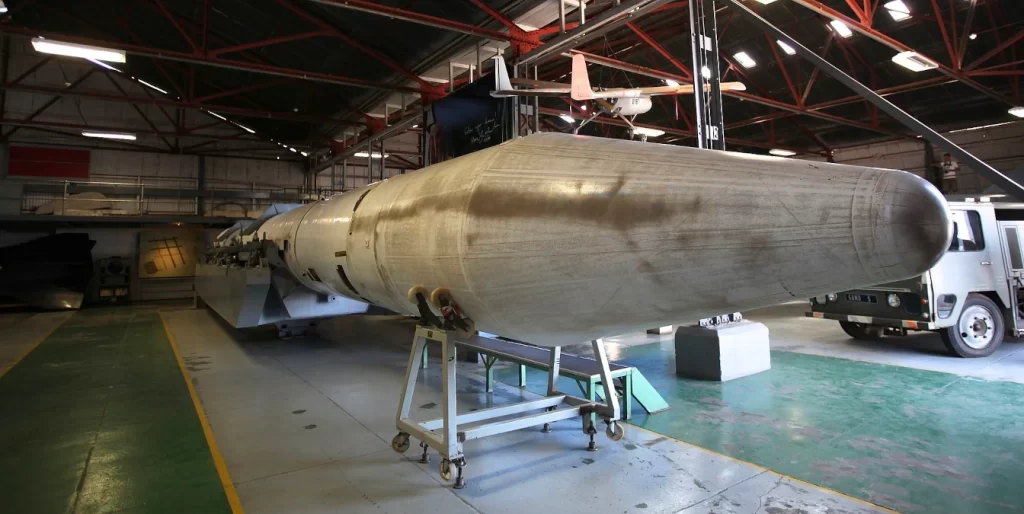Israeli Minister for Jerusalem Affairs and Heritage Minister Amichai Eliyahu has suggested that the use of nuclear weapons in the Gaza sector is a potential escalation of the conflict. This statement sparked a significant international scandal. Repercussions persisted despite Elijah’s suspension from government meetings and harsh criticism by Prime Minister Benjamin Netanyahu. The matter at hand concerns the fact that Israeli officials have yet to affirm the nation’s possession of nuclear weapons. Nevertheless, they have not refuted it either. Furthermore, it is worth noting that Israel is among the select few nations globally that have declined membership in the Non-Proliferation Treaty and enforced a ban on international investigators entering its nuclear facilities.
What information is available regarding the Israeli nuclear programme?
Two significant nuclear research facilities have been in operation in Israel for more than 60 years: the “Soreq Nuclear Research Center” near Yavne, which was built in 1955 under an agreement with the US, and the second facility Shimon Peres Negev Nuclear Research Center in the Negev Desert, which was put into service in 1963 with French assistance. These facilities use a heavy water reactor and an irradiated fuel processing facility to create nuclear materials with purity suitable for use in weapons. It is estimated that these factories can produce five to ten nuclear weapons a year with their capacities.
Israel has been accused on several occasions of stealing nuclear materials from other nations and making covert purchases of such material. For instance, it was eventually assumed that over 100 kilograms of enriched uranium that had vanished from a Pennsylvanian plant in 1986 were actually shipped to Israel. Around the same time, Israeli security services acknowledged smuggling illicit vacuum tubes from the USA, known as krytrons, which are used to set off nuclear weapon detonators.
Very Little Evidence
Since its inception, Israel’s nuclear programme has been cloaked in secrecy. Mordechai Vanunu (also called John Crossman), a technician at the research centre in the Negev Desert, escaped to Italy in the early 1980s and gave The Sunday Times images he took during his tenure. He was captured by Mossad agents in 1986, returned to Israel, and sentenced to 18 years in prison.
American Hungarian-American theoretical physicist Edward Teller, the “father” of the hydrogen bomb, disclosed to journalists that he had been assisting the Israeli scientific community on nuclear topics for 20 years. Teller claims that Tel Aviv trusted the findings of his theoretical research and chose not to conduct real bomb tests since they could pose serious problems.
A Strategic Triad
At present, Israel possesses a nuclear arsenal spanning from 75 to 400 units, as reported by the Centre for Strategic and International Studies in Washington. This arsenal reportedly comprises a hydrogen device capable of producing an impact greater than one megaton. The majority of other estimates place the quantity at under 200 units or about 90 units.
With a range exceeding 5,500 kilometres, the intercontinental ballistic missile Jericho III serves as the principal method of ground-based delivery. Furthermore, cruise missiles with the capacity to transport nuclear payloads are operational with the Israeli Navy Dolphin-class submarines (expected to be replaced by three Dakar submarines soon). With their aerial refuelling capability, Israeli Air Force F-15I and F-16I Sufa fighters (maybe even F-35I Adir fighter jets) are also capable of transporting nuclear weapons over great distances.

The assertions regarding the potential deployment of nuclear weapons in Gaza are inflated, given that such a course of action would deprive Israel of several political benefits. The act of pressing the “button” is improbable to receive approval from Washington because HAMAS continues to hold numerous foreign nationals, including Americans, in detention. Egypt and other White House allies are located near the Gaza Strip and could be significantly impacted by the repercussions of an attack. Particularly as the US enters a new electoral cycle, such a military escalation in the Middle East would be disastrous.
However, it is dangerous to disregard the rhetoric of Israeli politicians entirely. The possible use of depleted uranium projectiles, of which Israel has been suspected since the Second Lebanon War in 2006, is not ruled out.
Ways Iran Can React
The existence of nuclear weapons in Tehran is also not verified by the country’s authorities or international experts, even though Iran has the requisite infrastructure and technological underpinning for such activity. According to the most recent estimates, Iran is only a few months, if not weeks, away from developing nuclear weapons.
In addition, Ali Khamenei, the spiritual leader of Iran, has issued a ban on the use of nuclear weapons. Nevertheless, this deterrent effect might be nullified, especially when the very existence of the Islamic Republic is in doubt. Iran hosts several operational uranium mines and facilities dedicated to scientific research and enrichment.
Iran has no problems with its delivery systems because it has one of the largest and most diverse short- and medium-range ballistic missile arsenals. The Iranians are undoubtedly engaged in indirect indications of their endeavours to develop an intercontinental ballistic missile through their frequent space launches.
On account of the vast disparity in Iranian arsenals, a full-scale nuclear confrontation remains unfavourable for Iran. The disclosure of its nuclear programme would incite equivalent reactions from Turkey, Egypt, Saudi Arabia, and the United Arab Emirates, all aimed at reinstating the regional balance of power.
